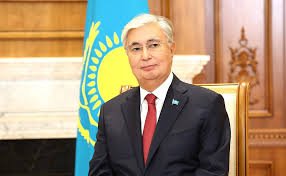Bulgaria’s Eurozone Entry Brings Economic Promise Amid Public Concerns, Says Deputy PM Donchev

Sofia, The Gulf Observer: Bulgaria’s transition to the euro will bring clear economic advantages, but must be managed with care to avoid potential fiscal and public perception pitfalls, Deputy Prime Minister and Chair of the Economic Analysis Council, Tomislav Donchev, said during a panel discussion titled “Bulgaria in the Eurozone: Prices, Investments, and Fiscal Policy” at Sofia University “St. Kliment Ohridski.”
The event, part of the Council’s third annual conference, brought together key economic voices including Assoc. Prof. Atanas Georgiev, Dean of the Faculty of Economics; Plamen Nenov, Council Secretary; Desislava Nikolova, senior economist from the World Bank’s office; Lyubomir Datsov from the Fiscal Council; and Atanas BTA.
Donchev acknowledged that “price vibrations” are likely during the initial months following euro adoption, but downplayed their economic impact, describing them as “psychologically driven and short-lived.” He emphasized that with effective institutional oversight, markets will stabilize swiftly, mirroring experiences seen in other eurozone entrants.
“The greater challenge will be public reaction rather than the economic process itself,” he noted, expressing confidence that public concerns would begin to subside by March 2026.
Beyond inflation fears, Donchev highlighted a less-discussed risk: the temptation for future governments to increase public debt due to easier access to financing. He warned that without strict fiscal discipline, such borrowing could erode long-term stability.
“Regardless of pressure or opportunity, the national budget must remain balanced and avoid deficits,” he stressed.
Despite potential risks, Donchev affirmed that euro area membership remains overwhelmingly beneficial, citing greater access to capital, enhanced investor confidence, deeper EU integration, and long-term infrastructure development—particularly the completion of transport corridors 4 and 9. He also called for improvements in vocational education to strengthen Bulgaria’s economic convergence with Western Europe.
Donchev underlined that transparency and open dialogue are key to countering public anxiety. “The best defense against price speculation and public uncertainty is informed citizens and a responsible fiscal framework,” he concluded.
The panel echoed a broader consensus that Bulgaria’s euro adoption must be accompanied by responsible governance, market integrity, and robust public engagement to ensure a smooth and successful transition.


